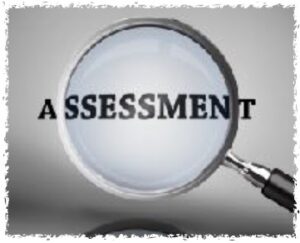 What is an empath?
What is an empath?
The ability to understand the experiences and feelings of others is one way to define empathy. An empath often lacks the filters necessary to keep from experiencing excessive stimulation through absorbing the energy of this environment. Empaths are highly sensitive and able to interpret feedback from other sources to arrive at a perspective of what others might be going through. The most common categories of empathic attunement are:
- people (absorbed the energy of there people)
- animals (connected emotions regarding animal behavior and conditions)
- Earth energies (geopathic stress, magnetic waves, vortexes, and energetic disruptions)
- planetary positioning (alignment of the planets and stars, retrogrades, and movement)
- landscapes (locational frequencies, absorbing of energies from large perspectives)
- environment (EMFs, radio waves, electronics, gamma rays, cluttered energy)
As we study and learn more about empathy, it becomes clear there are different types, different kinds, and different levels of empathy. Below are the three basic types of empathy:
Emotional empathy is felt in the stomach area and perhaps the most commonly found with sensitive people. It involves physical sensations and feelings involving energy in the environment. The emotional empath physically feels the emotions of others.
Cognitive empathy is a knowing from the mental dimensions associated with Claircognizance (clear knowing without knowing how you know) with the use of thought, intellect and understanding. Mirror Neurons in the brain allow the vibrations of another person’s experience to be duplicated by the empath.
 Compassionate empathy is a heart-centered experience. It combines the cognitive empathy with emotional empathy to create consideration for others with synergy to take intellect and emotions into action. Compassionate empathy honors the natural connection to another human being to consider ways to help others without taking on the emotional burden of their problems. When an empath can take the middle ground and remain at the heart level, they can use their emotional intelligence to respond to a situation with a healthy level of detachment.
Compassionate empathy is a heart-centered experience. It combines the cognitive empathy with emotional empathy to create consideration for others with synergy to take intellect and emotions into action. Compassionate empathy honors the natural connection to another human being to consider ways to help others without taking on the emotional burden of their problems. When an empath can take the middle ground and remain at the heart level, they can use their emotional intelligence to respond to a situation with a healthy level of detachment.
Empaths have big hearts and hold a lot of compassion for others, which makes them excellent caregivers, healers, friends, and partners. Physical empaths are highly intuitive, with a well-developed gift called Clairsentience (clear feeling), which is the ability to gain knowledge through a sense or feeling. The best use of empathy is to cast out a lifeline to another without falling into their pit of despair.
Are you an empath and what type?
Find out by taking the test.
Part 1
- Do you have a heightened intuition?
- Have you been told you are sensitive or too sensitive?
- Can you feel drained after being in close contact with another person?
- Are you someone who needs recharge time?
- Do you avoid conflict?
- Are you easily overwhelmed?
- Do you avoid crowds
- Have you ever been labeled a hypochondriac?
- Have you ever sat next to someone in a theater or gathering and felt sleepy, with heavy eyelids or zoning out?
- Have you ever watched a movie or the news about someone being injured and felt pain or nausea?
- Have you ever had medical tests run and been told by the doctor that there’s nothing wrong?
- Do emotionally intense situations leave you feeling exhausted?
- Do you have a hard time not caring?
- Are you easily over-stimulated by people, sounds, lights, odors, or loud music?
- Do people naturally tell you their problems?
- Do you have chronic symptoms treated without success?
- Have you ever felt that you didn’t fit in or shouldn’t be here?
- Do you apologize frequently?
- Do you have a tendency to isolate?
- Are boundaries difficult or impossible to create and maintain?
- Can you go from an expansive feeling of love and joy to a contracted feeling of fear, shame, or sadness?
- Are you ever disheartened by what you see in the world?
- Do you constantly search for answers to physical conditions of bloating, pain, or discomfort?
- Have you ever felt a sensory overload?
Part 1 Results
If you answered yes to 8 out of the 24 questions, you are somewhat of a physical empath.
If you answered yes to 16 out of the 24 questions, you are a physical empath.
If you answered yes to 18 or more of the 24 questions, you are a high-level physical empath.
Part 2
- Can you tell when an animal or person is injured, hurt, or suffering?
- When that happens, are you able to remain strong and unaffected?
- Can you look at a person and see inside their body?
- Can you see auras?
- Have you ever known that someone died without being told, then found out it was true?
- Have you ever gone somewhere for no logical reason to find a person who needed help?
Part 2 Results
If you answered yes to 2 out of the 6 questions, you are somewhat of a cognitive empath.
If you answered yes to 4 out of the 6 questions, you are a cognitive empath.
If you answered yes to all 6 questions, you are a high-level cognitive empath.
Part 3
- Have you ever been in an intense situation but managed to take charge, help others, and remain grounded?
- Are you able to listen to a person talk about severe trauma without it draining your energy?
- Do you people tell you their problems and you seem to automatically know what they need to do?
- Can you experience a family member in crisis without immediately trying to fix it?
- Do you communicate clearly when facing conflict?
- Do you feel deeply without getting overwhelmed?
Part 3 Results
If you answered yes to 2 out of the 6 questions, you are somewhat of a compassionate empath.
If you answered yes to 4 out of the 6 questions, you are a compassionate empath.
If you answered yes to all 6 questions, you are a high-level compassionate empath.
 The Challenges of a Physical Empath
The Challenges of a Physical Empath
One of my first experiences with issues around empathy came when I experienced an awakening that led me to exploring my gifts. One incident seemed to direct my focus toward unexplained mysteries such as people who disappeared and unsolved murders.
There was a missing young woman in Georgetown who went jogging one day and was never seen again. Seeing my interests in her disappearance, a friend connected me with a person she knew with an interest in the case who happened to be my neighbor. This new acquaintance showed me a drawing of a man who she felt had murdered the young woman from Georgetown, and buried her in a cactus garden on a property outside Waco.
The information she shared were amazingly detailed, despite any actual material evidence. There was a feeling her information was very accurate. She had told the police, but they had dismissed her psychic impressions.
As we talked, she shared the story of her life as a medium and her current struggles with illness. This was my first exposure to empathetic illness. She knew her gift of empathy had contributed to the absorption of toxic emotional content that eventually led to the compromise of her health. The result was, she had consciously turned off her gifts in the name of survival.
Her unusually intense experiences in mundane places like the grocery store began to paint a picture. It became clear that if I were going to embrace my gifts, there was a need to develop better boundaries in my spiritual life to avoid the same fate as my newfound peer.

Empathetic illnesses are those which you manifest symptoms from taking on energy that is toxic. Some doctors and psychiatrists label this as agoraphobic with panic disorders, chronic depression, fatigue, pain, bloating, or mysterious ailments that respond only partially to medications, psychotherapy, energy healing, or other types of treatments. Agoraphobic as a noun describes a person with an extreme or irrational fear of entering open or crowded places, of leaving their own home, or of being in places from which escape is difficult.
Like my neighbor, some empaths become housebound or ill for years. The uncontrolled absorption of energy can be experienced in many ways, including anxiety, depression, pain, stress, exhaustion, sleep issues, bloating, or emotional flooding with content such as abstract fears, extreme anger, or an unhealthy focus on conspiracy theories.
In my practice, I find empaths struggle with polarity issues as well, which is a stress response affecting the nervous system. Polarity issues (IEL 5.3 module) are also contagious, which means being in a crowd or around people in stress or who have experienced trauma can have a negative effect on an empath. The repeating challenge of absorbing toxic energy by an empath, can lead to the belief that they need alone time in order to recharge their energy, to feel better, or just to feel safe and grounded.
Physical empaths have a porous electromagnetic field, which allows them the gift of knowing through feeling the energy. The openings can provide an enormous benefit to expressing their intuitive gifts, but can also come at a cost. Without the ability to control the gift, a physical empath has no defense or ability to shield the toxic energies found in an environment.
With the presence of polarity issues, the aura pulls back close the body which allows the physical body and the sensory system to become bombarded by EMF’s, electrical devices, radio waves, 5G, radiation, geopathic stress, harsh people, loud music, fragrances and odors, the movement of the planets, and other energies that fill their immediate environment.

Most empaths struggle with digestive and stomach problems. A bloating stomach is a sign that you have absorbed energies from your environment, your food (yes food can carry toxic emotions), a circumstance, situation, or a person with whom they have been exposed. The answers to questions of empathy can be found in the Solar Plexus, which is the energy center dedicated to digestion and nourishment. It is anatomically connected to the stomach, pancreas, liver, and most of the major organs.
The Solar Plexus is also dedicated energetically to the divine principles of free will, personal authority, lower intuition, vital chi, and empathy. The most common symptoms of imbalance with the Solar Plexus is bloating, gas, cramping, nausea, pain, ulcers and elimination issues. As an empath, you can make everyone around you feel better, because you absorb the dark or negative energies. The more extreme or intense the energy found in the environment, the greater the detrimental effect on the Solar Plexus and ultimately your health.
10 Tips for Living a Balanced Life as an Empath
In order to maintain wellness, the empath must find ways to create healthy boundaries. Spirit once whispered to me, if you don’t have good boundaries in the physical world, you will not have them in the non-physical world. The message was clear to me back then, develop better boundaries or allow empathetic illness to take over my body. The other message was to find ways to let go of anything I may have absorbed.
Acknowledgment of your gift, along with acceptance of the beauty and the challenges of empathy, is the first step toward grounded development and effective energy management. No, you are not TOO sensitive or cursed! You are special enough to live a deeper, richer, more complex life than most.
Tip #1
Awareness is key to taking action with your sensitivity. Notice the body when it’s trying to communicate you are absorbing energies that may be toxic. Even an uncomfortable feeling can indicate there are energies being absorbed that are not yours. For some, this may show up as a tingling, an emotion, tension, stress, electricity moving through the body, anxiety, nervousness, nausea, feeling drained, or some sign specific to you.

Tip #2
Assessment follows awareness. Is what you are feeling coming from you, or have you absorbed emotional energy from your environment? Ask and your body will give the answer. Listen and trust what you get, then confront the situation. Don’t allow the absorption to continue.
Tip #3
Get connected with yourself and your body to know what you need to take the next step. Everyone has vulnerable points. For some it’s the stomach, for others it’s the throat, the back, or the knees. Pressure in the head can make you spin, present as vertigo, or create nausea. Your body will give you important feedback if you are willing to listen. The onset of symptoms is your key to the action. Getting in touch leads to taking action.
Tip #4
Movement is essential for the empath. Moving the body will discharge the energy. But if the environment is toxic, move away from the person or source of the energy to see if you find immediate relief. Take care of yourself first, and don’t worry about appearances. Taking a bathroom break or stepping outside for a moment is a simple movement that can be very beneficial. Once you have discharged the energy, you can return to the area with a stronger system.
Tip #5
Use your breath to help balance the energy. Long. deep inhales and exhales can remove the body from fight-or-flight mode. The forced breath method taught at the IEL Institute is one of the best quick release methods backed by the science of Dr. Marcel Vogel. Breath will bring you back to center and so will the use of polarity methods (IEL 5.3 module) that combine breath with grounding the energy. When you notice our body reacting, take a deep breath.
Tip #6
A brief meditation using a focus on breath and visuals can boost the immune system, bringing immediate relief and positive replacement energy. Visualizations of protective light surrounding you can help, but that can also bring up fear of what you are protecting yourself from. I prefer visuals of inspiration over ideas of protection. The former raises the vibration. Use the visual of a loving friend, a safe environment, a work of beauty, or an inspired memory.
Tip #7
Practice setting healthy boundaries with yourself and others, then notice when you are less affected by the environment. Boundaries mean you know when to say yes and how to say no. Fifty percent of all boundaries are with that mean roommate taking up space in your head, so be mindful of thoughts targeting you and your self-esteem. Saying no means you are clear about your limits and taking responsibility for your actions, which is one definition of self-love.
Tip #8
Place a hand over the area of the body most affected when a situation brings awareness that you are absorbing the toxins. The hand has several chakras (energy points) that can act to boost the Electromagnetic Field. Placing a hand over the stomach can block the outside energies and move energy that feeds the Solar Plexus some good energy.
Tip #9
Get in water. Soaking salt baths can help release toxins after a day of intense experiences. Take a cold shower or turn the water to cold at the end of your shower for a few minutes. Human lymphatic systems have no central pump like the circulatory system. Contraction of muscles during a cold shower acts to massage the lymph glands allowing them to flow as a filter of toxins. The metabolism increases, the body gets better rest, endorphins are released into the system, fat burning increases, and you can feel energized!
Tip #10
The energy for love, not the transient emotion of love, is the greatest energy purifier. Speaking works of love and truth while in a taxi environment creates a moment of connection to divinity. Calling on an ancestor, an animal spirit, or spiritual guide opens the channels to pure energy to fill the space. Any form of love energy lifts the vibrations in and around you. Play with this tip in different situations and find your connection to the energy of love.
Empathy and the Adrenal System
One thing I discovered in my practice was the link between empaths and the adrenal glands. The absorption of toxic energy activates the fight-or-flight mode, and the result is the release of Cortisol. Cortisol is a steroid hormone that regulates a wide range of processes throughout the body, including metabolism and the immune response. It also has a very important role in helping the body respond to stress.
Cortisol is sometime referred to as the survival hormone. How we respond to perceived threats evolved as a means of survival, enabling people to react to what could be a life-threatening situation. The change in hormones and physiological responses forces us to either face the threat or leave it behind. Empaths are often conditioned to running high levels of this stress-producing hormone due to the constant over-stimulation of the sensory system.
General signs and symptoms of too much cortisol include:
- weight gain (mostly around the abdomen or face)
- thinning skin
- easy bruising
- flushed face
- bloating
- mood swings
- slowed healing
- muscle weakness
- severe fatigue
- irritability
- difficulty concentrating
- high blood pressure
- headache
- sleep issues (midnight cortisol release)
- anxiety
- depression
A measurement of 8-25 is the normal range of Cortisol with sub-clinical testing. Many empaths are conditioned to maintaining constant high levels of Cortisol. Some people do tend to gain weight when under stress, but the cause of this weight gain is likely a mix of hormonal and psychological factors. The body has a system of hormonal checks and balances that may actually promote weight gain when you’re stressed out. Sensitive people add gain weight for psychic protection, by using Cortisol as the catalyst.
Following the stressful or threatening event, epinephrine and norepinephrine levels return to normal while Cortisol levels can remain elevated over a longer time period. In fact, Cortisol levels can remain persistently elevated in the body when a person is subjected to chronic stress like what it takes for an empath to process unfiltered energies.
Cortisol has many actions in the body, and one ultimate goal of Cortisol secretion is the provision of energy for the body. Cortisol stimulates fat and carbohydrate metabolism for fast energy, besides stimulating insulin release and maintenance of blood sugar levels. The result of these actions is an increase in appetite.
Therefore, chronic stress, or poorly managed stress, may lead to elevated cortisol levels that stimulate your appetite, with the end result being weight gain or difficulty losing unwanted pounds. Most empaths engage with emotional eating to calm the system, but not all will gain weight. Stress can cause weight loss.
Cortisol can affect where you put on the weight. Researchers have shown that stress and elevated Cortisol tend to cause fat deposits in the abdominal area rather than in the hips. These fat deposits have been referred to as “toxic fat,” since abdominal fat deposition is strongly correlated with the development of cardiovascular disease.
Whether or not empathy will bring stressors that result in high Cortisol levels and weight gain, is not readily predictable. The amount of Cortisol secreted in response to stress can vary among individuals, with some being innately more reactive to absorption of energy.
 Ways to regulate empathetic stress and Cortisol levels
Ways to regulate empathetic stress and Cortisol levels
Get the right amount of sleep
Go to bed and get up at regular times. Limit distractions 1-2 hours before bed to allow for the body to release stimulation or calm down.
Exercise, but not too much
Studies show that mild or moderate exercise at 40–60% of maximum effort does not increase cortisol in the short term and can lead to lower levels at night. Exercise moves toxic energy out of the body to help regulate the system.
Learn to recognize stressful thinking
Stressful thoughts are an important signal for the empath. A study of 122 adults found that writing about past stressful experiences increased cortisol over one month, compared to writing about positive life experiences or plans for the day. Empaths are notorious for always working on themselves, past the point of giving the spirit the rest it needs to restore.
Mindfulness-based stress reduction is a strategy that involves becoming more self-aware of stress-provoking thoughts and replacing worry or anxiety with a focus on acknowledging and understanding stressful thoughts and emotions.
Training yourself to be aware of your thoughts, breathing, heart rate, and other signs of tension helps you regulate empathetic responses when they begin. By focusing on awareness of your mental and physical state, you can become an objective observer of your empathy instead of a victim of your gift. Recognizing stressful thoughts related to your high-level of caring allows you to formulate a conscious reaction to empathy.

Learn to relax
Deep breathing is a simple technique for stress reduction that can be used anywhere. Yoga, energy balancing, meditation, reading, gardening, listening to relaxing music, and polarity work can all help to calm the nervous empathetic system. Find ways to enjoy stillness and doing nothing
Have fun
Another way to keep stress from empathy at lower levels is simply to be happy. For example, a study of 18 healthy adults showed Cortisol decreased in response to laughter. Anything that will simplify your life will add more enjoyment through conscious living.
Maintain healthy relationships
Cortisol is incorporated in tiny amounts into your hair. The amounts of cortisol along the length of a hair correspond to cortisol levels at the time that part of the hair was growing. This allows researchers to estimate levels over time. Studies of Cortisol in hair show that children with a stable and warm family life have lower levels than children from homes with high levels of conflict.Within couples, conflict results in a short-term elevation of Cortisol, followed by a return to normal levels. This is especially true for empaths.
A study of conflict styles in 88 couples found nonjudgmental mindfulness or grounded empathy led to a more rapid return of Cortisol to normal levels following an argument. Support from loved ones can also help reduce Cortisol in the face of stress. Another study showed that having an affectionate interaction with a romantic partner before a stressful activity benefited heart rate and blood pressure more than support from a friend.

Take care of a pet
Relationships with animal companions can also reduce stress. In one study, interaction with a therapy dog reduced distress and resulting Cortisol changes during a minor medical procedure in children. Another study of 48 adults showed that contact with a dog was better than support from a friend during a socially stressful situation.
Be your best self
Feelings of shame, guilt, or inadequacy can lead to negative thinking and elevated Cortisol. A program to help identify and cope with these kinds of feelings led to a 23% reduction in Cortisol in 30 adults compared to 15 adults who did not take part. For some causes of guilt, fixing the source will mean changing in your life. For other causes, learning to forgive yourself and moving on can improve your sense of well-being.
Tend to your spirit
If you consider yourself spiritual, developing your faith can also help improve empathetic stress. Studies show that adults who expressed spiritual faith experienced lower Cortisol levels in the face of life stressors such as illness. This was true even after studies took into account the potential Cortisol-lowering effects of social support from faith-based groups. Prayer is also associated with reduced anxiety and depression.
Eat healthy foods
Sugar Intake is one of the classic triggers for Cortisol release. Regular, high sugar intakes may keep your levels elevated. Consuming sugar is especially linked to higher Cortisol in obese individuals. Interestingly, sugar can also reduce the amount of Cortisol released in response to specific stressful events.Taken together, these effects explain why sweet desserts are good comfort foods, but frequent or excessive sugar increases Cortisol.
Additionally, a few specific foods can benefit cortisol levels:
- Dark chocolate: Two studies of 95 adults showed that consuming dark chocolate reduced their Cortisol response to a stress challenge.
- Many fruits: A study of 20 cycling athletes showed eating bananas or pears during a 75-km ride reduced levels compared to drinking water only.
- Black and green tea: A study of 75 men found 6 weeks of drinking black tea decreased Cortisol in response to a stressful task, compared to a different caffeinated drink.
- Probiotics and prebiotics: Probiotics are friendly, symbiotic bacteria in foods such as yogurt, sauerkraut, and kimchi. Prebiotics, such as soluble fiber, provide food for the good bacteria. Both probiotics and prebiotics help reduce Cortisol.
- Water: Dehydration increases Cortisol. Water is great for hydrating while avoiding empty calories. A study of nine male runners showed that maintaining hydration during athletic training reduced Cortisol levels.
Take a Supplement for Adrenal Support
Ashwagandha is known to reduce Cortisol. I always recommend working with a knowledgeable professional who is skilled and knowledgeable about the adrenal glands. Several areas of expertise in Western Medicine still do not recognize adrenal fatigue as a diagnosis. An endocrinologist will see the Cortisol levels and address imbalances, so will most Integrative Doctors and nutritionist. Be aware that if the adrenal energy center is blocked, an adaptogen might not be effective, so that is where energy medicine can be beneficial with getting to the source of the imbalance. Self medication of the adrenal glands can be dangerous, so proceed with caution when it comes to supplementation.
Sex
Sex is a great way to release toxic energy absorbed from the environment. Studies have shown that sex lowers the Cortisol levels and elevates the mood. For an empath, sex can be a great management tool for balanced energies and wellness.
Moving physical empathy to mental empathy, then to compassionate empathy

One of the best things I ever did for myself was to consciously work toward shifting physical empathy to mental empathy, which led to compassionate empathy. Cognitive empathy is about combining thoughts with emotions.The shift of intuitive senses is an intentional process that includes the possibility of complete removal from the emotions and understanding what someone might be going through.
But once the transformation away from the ‘mirror neurons’ has been accomplished, along with a healthy detachment from any physical suffering, the gift can be brought down into the heart for compassionate empathy and the ability to perform at the highest level of service.
This was a process for me that took about a year. Such a practice will likely be different for every person. Once again, awareness is the first step toward healing an imbalance and taking measure to avoid future issues. If you are aware of absorbing toxins, it’s time to take measures to relieve the body of the pain, tension, and discomfort that comes with life as a physical empath.
Communication with the physical body is the next step. Establish intent to move the intuitive gift and sensitivity to the mental dimensions. This can be done is three ways:
- Speaking the intention out loud, using a visualization, or some combination of both, is one recommendation. I always advise seeing the intention being written down on piece of paper, folding the paper, and then placing the paper into a container inside your heart. Some call this your God Box. One intention I might suggest would be: “My intention is to move my gift of empathy from the physical body to the mental dimensions, then into my heart. I intend to keep and nurture my gift, but will no longer absorb the toxic energy from my environment or from others. My desire is to KNOW the important information without FEELING any ill effects in order to maintain vibrant health. Once I have completed the move, my intention is to combine the feeling and the knowing with kindness and action. Using a visual of a golden light in the stomach area moving to the head area, or something that visually symbolizes your intention, is useful in this process.
- Affirmations are like prayers, declaring your freedom from disharmony or the negative effects of certain life experiences. The affirmation provides an opportunity to shift the internal vibrations. Changing the internal vibrations can shift the disharmony by opening energy channels. Writing the affirmation might be the best, but using them like mantras during mediation can be more effective for some. The best potential outcome depends on the individual, their personal habits, and their lifestyle. Using an affirmation like I no longer tolerate feeling the pain of others can be a way of taking command over your body as opposed to demanding like a child. Use the intention above as an affirmation or create your own way of shifting the energy.
- The Polarity Therapy (IEL 5.3 Module) method developed and used in my practice and training has been tested on thousands. It has been shown to expand the aura, ground the energy, and close the openings. A physical empath must recognize their porous energy field and find ways to strengthen the energy. The most effective way to create a healthy boundary is through developing habits that lead to a healthy field of energy. A strong aura is developed through a combination of efforts related to changing habits, thoughts, behaviors, beliefs, patterns, and mindset. It takes great strength to make critical life changes, and it all begins with your energy. There are many theories on polarity therapy that include nutritional approaches, using Emotional Freedom Technique (tapping), Reiki, and several others. We have tested almost every approach and created one that really works. Contact us for more information on Polarity Therapy.
Practice makes perfect. I practiced the internal shifting from physical empathy to mental empathy often in my year-long process. I would intentionally test my empathy to see if I could obtain the information without affecting my physical body. Noticing how the body was reacting to the people or environment served to further the process through self-awareness. It can be fun, creative and enjoyable to practice your cognitive empathy.

Using guides was essential in my work to shift the physical empathy to the mental dimensions. I was constantly asking for help from spirit in every part of the process mentioned above. Using language like protection is discouraged because of the fear that manifested to block my senses. The more effective use of language was Earthing or grounding. The toxic energy could be grounded to flow through me. Most empaths are conditioned to losing stability in the face of negativity. One key to vibrant health is to ground the energy so that it flows through the body and doesn’t clog the energy channels or settle in the stomach to cause bloating or other physical reactions.
Once the movement is complete, it is a matter of using the cognitive empathy in a balanced combination with the physical empathy to create a stable energy field and a higher level of performance through compassionate empathy. The benefit is being in the world without taking on the toxic emotion of the environment, standing in your power, and claiming your true authentic voice.
Summary
Working with your empathy is working in the mystery. No one can explain a process of gaining strength to avoid physical disruptions due to a natural gift. It can be done is the primary message, and hopefully the shift can occur using the insights from a physical empath. This empath refused to accept poor health and become resigned to an unacceptable outcome for using my gifts in service to others as the only option to continue my mission.
 Angel Whisper
Angel Whisper
The ability to clearly feel vibrations from people, animals, and the Earth develops and strengthens under certain conditions. Each person holds the seed of empathy which can lie dormant, especially if the gift is rejected early in life. Unhealthy attachments can surround and contain the energy, leading to an underdeveloped intuition and an over-developed instinct.
Without the balanced integration of masculine and feminine energies, empathy is often rejected due to unwanted emotions. The porous energy field can also develop larger openings due to trauma, leading to the potential over-absorption of environmental vibrations. Absorption of toxins can influence the illusion that your gift is a burden. Recognize this one truth, and the shift will have already begun. There is no reason having a gift should lead to isolation. The gift of empathy provides a constant reminder to remain mindful, authentic, and present. Do not trade good health over some notion you are meant to suffer by taking on external negativity.
Being empathic means you hold a high level of emotional intelligence that goes beyond simple knowledge. You can use that intelligence to bring the gift to the mental dimensions, where health is not susceptible to compromise. The desire to help make the world a better place is a common theme to all those with empathy. It doesn’t matter how you have positioned yourself in the world, expressing the gift of empathy gives more meaning to your life.
Emotions are expressed in a variety of vibrations, like keys on a piano. The concerto of one’s life orchestrates a response to all experiences. An occasional sour note can be struck, and when this occurs, an empath can absorb the tone of that energy. Your talents, strengths, and gifts set you apart from all others, with the opportunity for profound growth at the soul level.

